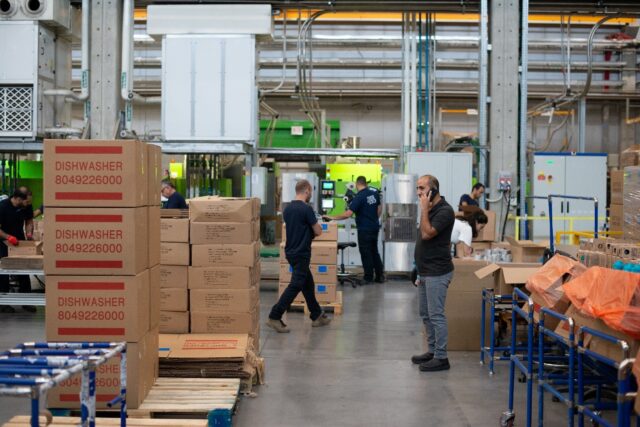
From the days of Henry Ford, data-driven decision-making has a long history with manufacturing. That movement is not slowing down with the advent of “Industry 4.0”. As such, Machine Learning has been a natural fit for manufacturing, practically because of the pre-existing store of data and culturally because of the lineage of using metrics to track improvement.
Machine Learning unlocks: cost savings, utilization optimization, improved worker safety and improved process yield.
Let’s look at five use-cases for machine learning in the manufacturing industry:
1. Defect Detection
You can use machine learning to classify product defects, which is often a resource-intensive process. With tabular data (e.g., supplier, SKU, factory) and, ideally, images (this does require a library of pre-classified images to train with, though!), a model can detect defects for you earlier in the manufacturing process.
2. Preventative Maintenance
You can also use machine learning to predict defects in equipment, enabling you to avoid disruptive failures and optimally plan replacement or maintenance. With the records from previous maintenance or failure events, data about the work performed, and, ideally, sensor data, you can determine the remaining lifetime or likelihood of an impending failure for your equipment.
3. Root Cause Analysis
Machine Learning models can describe what influences their predictions which you can use to prescribe a solution to prevent unwanted events from happening in the future. For example, when predicting the severity of industrial accidents or if a customer will return their order.
4. Demand Planning
You can use machine learning to predict sales to a level of detail (temporal, item, location) that has been difficult to produce manually in the past, particularly with unbiased assumptions about what drives demand in your market.
Resource planning is a subset of this; you can use machine Learning models to ensure that you have the right amount of labor and inventory available for a particular location, process, or shift by forecasting and assigning resource needs.
5. Supply Planning
The pandemic brought supply chain fragility into focus for many in the industry. With tabular data (e.g., shipping date, supplier, transport) of historical orders, you can use machine learning to predict if shortages of materials or shipping delays are upcoming. This relates to Root Cause Analysis, predictions not only aid in tactical responses but can also aid in long-term strategic planning.
Due to the structured nature of manufacturing processes, machine learning has a lot of impactful applications that are much more achievable than other industries. It is no wonder it has quickly adopted AI and advanced analytics to bring cost savings, profitability, efficiency, and safety. If you are interested in how machine learning can benefit your business, please get in touch with us.
More Insights
-
Qlik to Power BI Migration

-
Client Product Reporting in FX Sales & Trading

-
Consolidating Financials for Multiple Acquisitions

-
How Machine Learning Can Transform the Financial Sector in 2024

-
Tracking Key Business Metrics using Power BI

-
Update on the future of Talend Open Studio

-
Multinational Bank’s Need of Fluid Understanding for their FX Pricing

-
Building a Single View of a Customer’s Portfolio to Support Regulatory Compliance

-
Exploring Change Data Capture (CDC)

-
🔍 Excel vs. BI Tools: Why It's Time to Evolve Your Data Strategy

